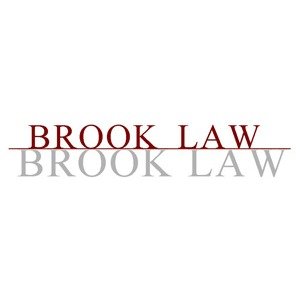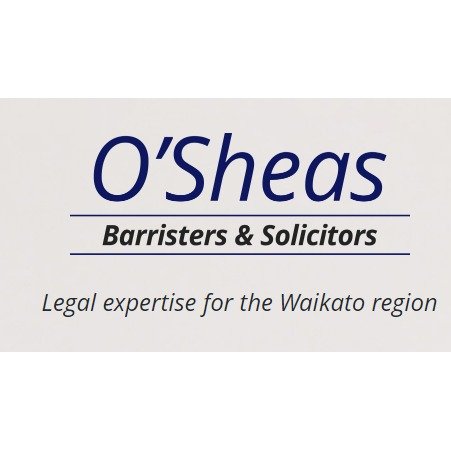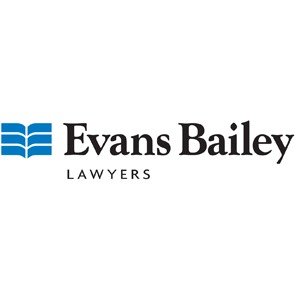Best Adoption Lawyers in Hamilton
Share your needs with us, get contacted by law firms.
Free. Takes 2 min.
Free Guide to Hiring a Family Lawyer
List of the best lawyers in Hamilton, New Zealand
About Adoption Law in Hamilton, New Zealand
The adoption process in Hamilton is governed by the Adoption Act 1955, which outlines the rights, obligations, and procedures that all involved parties, including adoptive parents, birth parents, and adoptees, must adhere to. The act ensures the best interests of the child are primary. This involves thorough assessment and vetting procedures to ensure adoptive parents are capable of providing a safe and nurturing environment.
Why You May Need a Lawyer
Adoption can be a complicated process involving numerous legal considerations. You may require legal help for various situations such as understanding the legal implications of adoption, maneuvering through the legal procedure, registration of adoption, and dealing with any post-adoption disputes. An experienced lawyer can help ensure that the process runs smoothly and all legal obligations are fulfilled to the letter of the law.
Local Laws Overview
The two fundamental aspects of adoption laws in Hamilton, New Zealand involve the eligibility of the adopting parents and the rights of the adopted child.
To be eligible, potential adoptive parents need to be at least 25 years old and at least 20 years older than the child. They need to be of good character, have financial stability and possess the ability to take on all responsibilities pertaining to the adopted child.
Moreover, the adopted child is granted all rights as a natural child of the adoptive parents; simultaneously, all rights, duties, obligations, and liabilities of the birth parents cease upon the finalization of the adoption process.
Frequently Asked Questions
1. Do you have to be married to adopt a child in Hamilton?
While it is not necessary to be married, the stability of the home environment is critical in the adoption decision-making process.
2. Is there a set timeframe for the completion of the adoption process in Hamilton?
The adoption process can vary widely in duration, typically taking several months to years. The timeline can depend on multiple factors including the readiness of the adoptive parents, legal procedures, and the availability of adoptable children.
3. Can birth parents regain custody of an adopted child?
Once the adoption process is legally finalized, birth parents no longer have legal rights or obligations toward the child. Regaining custody is highly unlikely unless in extreme cases such as proven serious misconduct or inability of the adoptive parents.
4. Can an adopted child inherit the property of adoptive parents?
Yes, upon successful adoption, the adopted child has the same right to inheritance as a biological child would have.
5. Can adoptive parents meet the birth parents?
Many adoptions in New Zealand are 'open adoptions', where some level of contact is maintained between the birth and adoptive families. This is decided on a case-by-case basis and must be in the best interest of the child.
Additional Resources
It could be valuable to consult resources like the Ministry of Social Development and the Adoption Option in New Zealand. Both have extensive information and guidance related to adoption.
Next Steps
If you are considering adoption and need legal assistance, the first step would be to reach out to a family lawyer experienced in adoption law. Legal consultation can provide clarity about your position and responsibilities. It is also advisable to contact the Department of Child, Youth and Family Services for advice and assistance throughout the process.
Lawzana helps you find the best lawyers and law firms in Hamilton through a curated and pre-screened list of qualified legal professionals. Our platform offers rankings and detailed profiles of attorneys and law firms, allowing you to compare based on practice areas, including Adoption, experience, and client feedback.
Each profile includes a description of the firm's areas of practice, client reviews, team members and partners, year of establishment, spoken languages, office locations, contact information, social media presence, and any published articles or resources. Most firms on our platform speak English and are experienced in both local and international legal matters.
Get a quote from top-rated law firms in Hamilton, New Zealand — quickly, securely, and without unnecessary hassle.
Disclaimer:
The information provided on this page is for general informational purposes only and does not constitute legal advice. While we strive to ensure the accuracy and relevance of the content, legal information may change over time, and interpretations of the law can vary. You should always consult with a qualified legal professional for advice specific to your situation.
We disclaim all liability for actions taken or not taken based on the content of this page. If you believe any information is incorrect or outdated, please contact us, and we will review and update it where appropriate.















